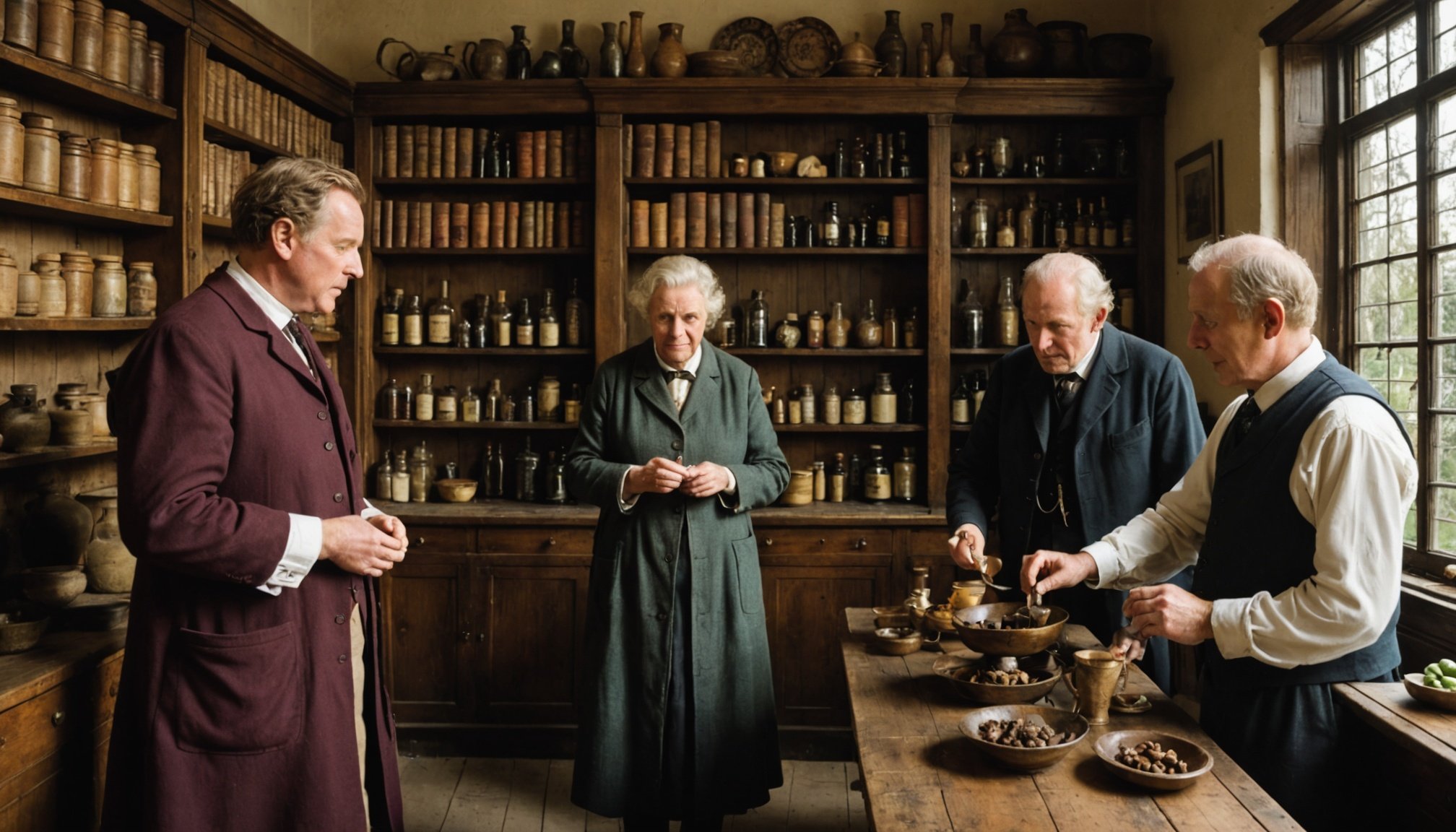Overview of British Folk Medicine
British folk medicine encompasses traditional practices and healing methods passed down through generations in the UK. These practices often rely on natural remedies, herbal concoctions, and spiritual rituals that have deep roots in various regions. Understanding these traditions requires a look into the historical practices that have shaped them.
Historical practices in British folk medicine include the use of herbalism, where plants like nettle and elderflower are used for their healing properties. Other practices involve rituals or beliefs, such as the use of charms and amulets to ward off illness or misfortune. These elements reflect a rich interplay between nature and tradition.
In the same genre : Discover Authentic British Metalcraft: An Immersive Tour into Traditional Artistry for Tourists
Participating in guided tours in the UK can significantly enhance one’s understanding of these age-old traditions. These tours often explore historical locations and provide insights into the cultural significance of folk medicine practices. Visitors might find themselves in medieval apothecary gardens or ancient sites where these remedies were used.
Guided tours enable experiential learning through interaction with knowledgeable guides who share stories and facts. This immersive experience provides a deeper appreciation for the cultural heritage associated with British folk medicine, making it both an educational and engaging journey into the past.
Topic to read : Discover Top UK Spots for Engaging Guided Tours in British Aviation History
Top UK Destinations for Guided Tours
Discover the rich tapestry of British folk medicine by exploring some of the top destinations in the UK renowned for their historical ties to these practices. Guided tours UK offer unique opportunities to delve into cultural heritage and immerse yourself in traditional folk medicine destinations. Each location showcases different aspects of British traditions and remedies, providing a thorough understanding of their origins and significance.
Destination 1: Glastonbury
Glastonbury is a site rich in folkloric history, blending British folk medicine with mysticism. The guided tours here often explore the healing qualities attributed to the Chalice Well and its surroundings. Visitors learn about historical practices, such as using natural springs for their medicinal properties. The tours highlight notable features like the Glastonbury Tor, adding depth to the experience.
Destination 2: Avebury
Known for its ancient stone circles, Avebury offers insights into how these monuments were believed to influence health and wellbeing. Guided tours delve into the cultural heritage linked to celestial alignments. The tours reveal how local traditions have been shaped by the landscape itself, encouraging participants to appreciate the historical and spiritual aspects.
Destination 3: Cornwall
Cornwall’s guided tours provide a unique perspective on the intersection of local culture and folk medicine. The region’s folklore is abundant with tales of herbalists and healers. Through these tours, participants gain a comprehensive understanding of how Cornwall’s maritime culture has influenced its unique folk medicine practices.
Key Elements of Folk Medicine Guided Tours
Folk medicine experiences offered during guided tours in the UK are rich with historical insights and contextual narratives. These tours illuminate the intricate ties between herbal remedies and local culture. Guided tours often begin by highlighting common themes in folk medicine, which include traditional treatments and folklore entwined with the healing arts.
Participants gain knowledge about the significance of folklore, featuring stories of legendary healers and mystical practices interwoven with historical fact. Local narratives shared by guides enhance understanding and appreciation, offering a window into the past where communal beliefs and practices shaped life.
Interaction with knowledgeable guides is a cornerstone of these tours. Their expertise transforms visits into engaging lessons on historical practices. Guides often point out how these traditions have influenced modern medicine, linking past and present medicinal philosophies. They also share insights on the enduring impact of these practices on local communities, highlighting the cultural heritage associated with them.
For those seeking a more profound connection to historical practices, these tours provide authentic, evidence-based experiences. They serve as a testament to the resilience and adaptability of British folk medicine, vital to understanding the evolving landscape of health and wellness over centuries.
Cultural Significance of Folk Medicine in the UK
The cultural heritage and impact of British folk medicine are invaluable facets of the nation’s identity. Historically, folk medicine has been pivotal in shaping community practices and beliefs, offering insights into societal norms and values over centuries.
At its core, British traditions in folk medicine not only provided practical remedies but also fostered a sense of community. Herb-laden remedies and ritualistic practices were shared experiences that bound communities through a shared cultural heritage. This tradition of communal healing has influenced contemporary health practices, drawing a direct line from ancient methodologies to today’s holistic health approaches.
The stories and legends that underpin folk medicine carry significant cultural weight. They reflect broader societal themes, such as resilience and resourcefulness, which continue to resonate in modern times. These narratives are integral to community storytelling, illustrating the deep-rooted connections between people and the land.
Guided tours UK are instrumental in revealing these layers, allowing participants to appreciate the rich tapestry of history woven through British folk traditions. Each tour offers not only a glimpse into historical practices but also highlights how these age-old customs remain relevant, informing and enriching modern cultural identities.
Tips for Booking Guided Tours
Planning your visit to partake in guided tours UK is a fulfilling way to explore the fascinating folk medicine destinations. When deciding on your journey, consider the optimal seasons. Typically, spring and autumn offer mild weather and picturesque landscapes, enhancing the overall experience. During these times, destinations are less crowded, providing intimate and immersive insights into the cultural heritage.
When selecting a tour operator, evaluate their understanding of British traditions and folk medicine. Choose operators that offer comprehensive historical context and have well-versed guides. User reviews often mention the depth of the guides’ knowledge and the quality of storytelling as vital factors. Look for tours that consistently receive high praise for these aspects.
Finally, packing appropriately is essential for a gratifying tour experience. Include items such as comfortable walking shoes and rain gear due to the UK’s variable weather. Bringing along a notebook for jotting down insights can further enhance your learning. A camera is also recommended to capture memorable moments and the breathtaking scenery surrounding traditional folk medicine destinations.
By considering these booking tips, you can ensure a well-rounded and enriching journey, fully exploring the rich tapestry that British folk medicine has to offer.


